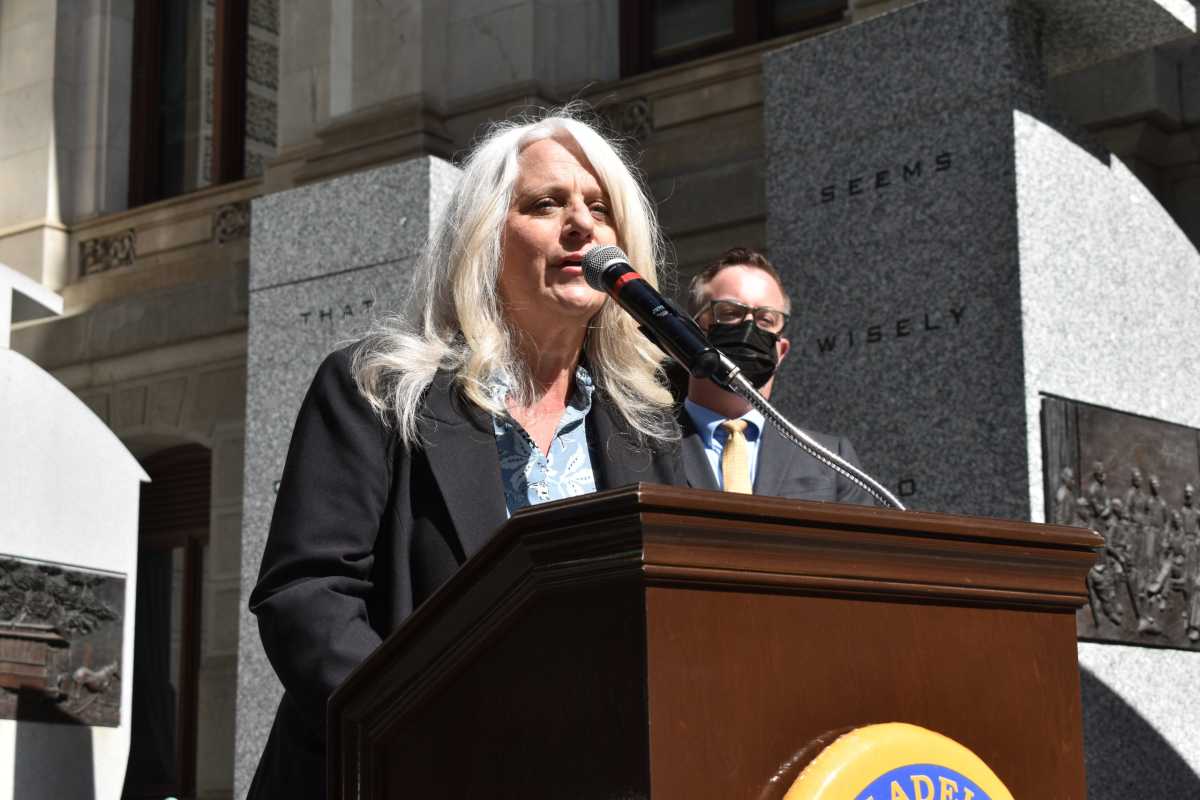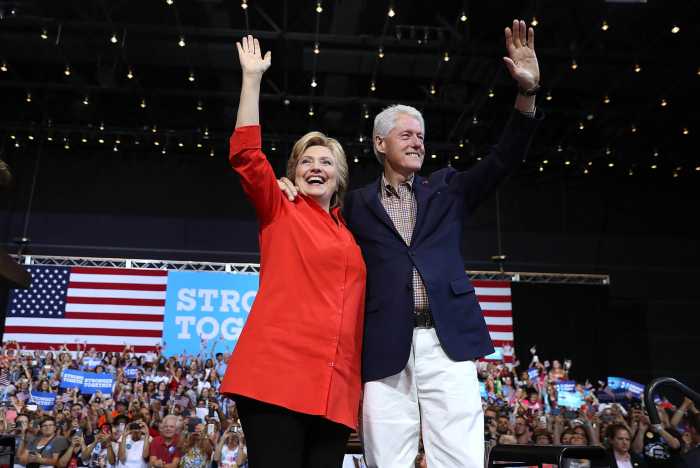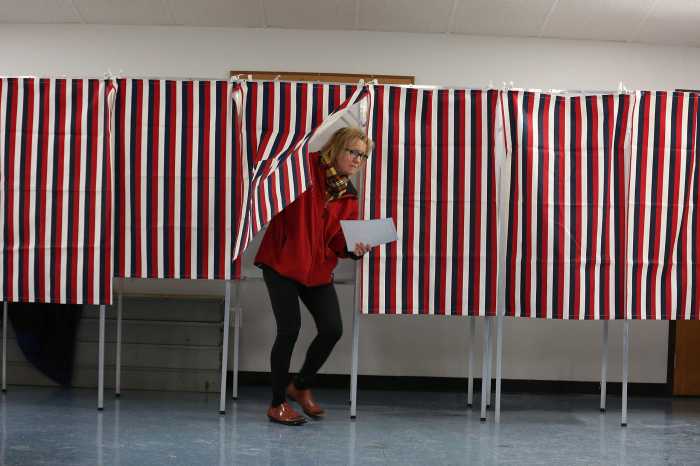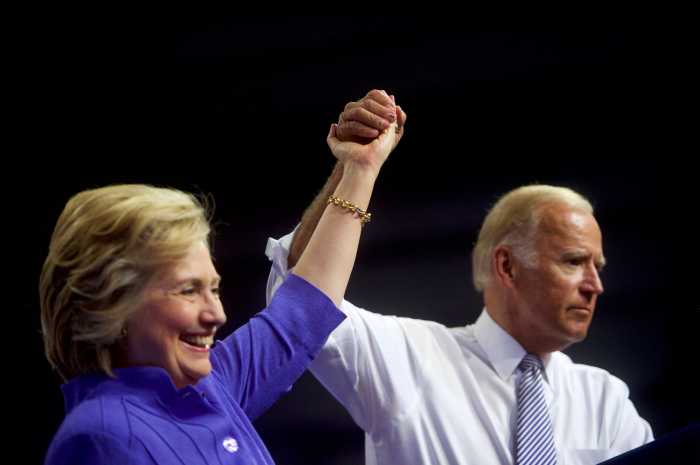Like in November’s presidential election, the winners and losers of Tuesday’s municipal primary may not be clear for several days, particularly in close races, as election officials work through tens of thousands of mail-in ballots.
City Commissioner Lisa Deeley, who chairs the three-person board overseeing elections in Philadelphia, said to expect conclusive results by Friday or Saturday.
Pre-canvassing is not allowed, meaning ballot-counting cannot start until 7 a.m. on Election Day. About 87,000 city voters requested mail-in ballots for the primary, according to Deputy City Commissioner Nick Custodio.
Those who haven’t yet submitted their mail-in ballots should take their envelope to one of 14 dropboxes set up around the city, or to City Hall’s Room 140. Votes must be received by 8 p.m. Tuesday.
“If you still have your mail-in ballot, absolutely fill it out and get it to us,” Deeley said. “It’s too late to mail.”
Deeley told reporters Monday that her office is still attempting to recruit poll workers. Diminished interest was, in part, expected following a highly-charged presidential election.
“There is a decline in poll worker interest, related to the COVID-19 situation, but we are working to effectively get all the polling places open on Tuesday,” Deeley said.
She said a “large number” of positions remain unfilled and that city staff would be sent out to voting locations if necessary. The City Commissioners plan to operate 707 polling places.
Registered voters can look up their polling place at votespa.com. In-person voting will take place from 7 a.m. to 8 p.m.
Every election, the District Attorney’s Office sets up an task force to monitor potential misconduct; however, with incumbent DA Larry Krasner on the ballot, some reports will be relayed to the Pennsylvania Attorney General’s Office, officials said Monday.
Jennifer Selber, an executive deputy attorney general, said calls to a hotline will be screened and any related to the DA’s race will be referred to her staff.
Though novel in Philadelphia, “this is not a new process,” Selber said. The state AG’s office often intervenes in counties where an incumbent prosecutor is enmeshed in a contested primary.
Assistant District Attorney Andrew Wellbrock, a member of the task force, said voters should be on the lookout for possible intimidation and campaigning, which is illegal within 10 feet of the door of the voting location.
Fraud should also be reported, though he added that such activity is rare.
“The 2020 election presented unique challenges involving outside influences spreading disinformation, lies and mistrust, all in an effort to undermine trust in our process,” Wellbrock said. “It didn’t work here in Philadelphia.”
He said the only criminal case resulting from November’s election involved the two armed men who drove to Philadelphia and were arrested outside the Pennsylvania Convention Center, where votes were being counted.
Anybody who spots what they believe to be illegal election-related activities can call 215-686-9641. About 20 attorneys and detectives will be on standby to respond to incidents, according to the DA’s Office.
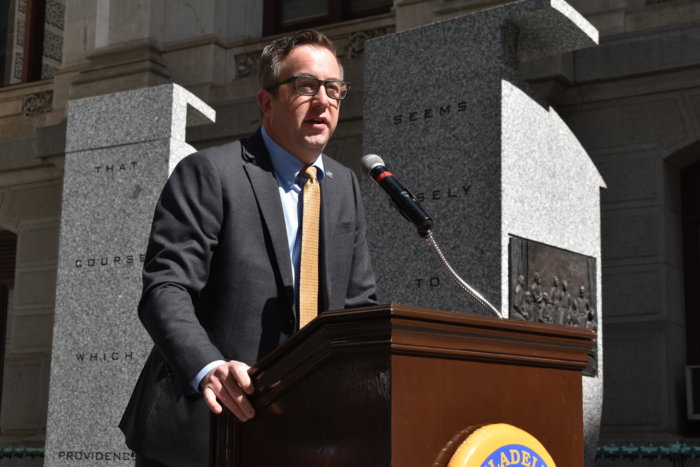
THE BIG RACE
Krasner’s re-election bid in the Democratic primary for district attorney is, by far, the most highly anticipated race Tuesday.
Carlos Vega, who spent 35 years as a Philadelphia prosecutor before being fired by Krasner, is campaigning on a message that he will reduce crime — in a city that has experienced a 40% year-over-year increase in homicides — and continue reforming the criminal justice system.
To bring down gun violence, he says he would enforce current firearms laws and invest in group violence intervention programs.
Vega said the DA’s office needs to recommit itself to communicating with victims, following an administration critics say has focused on defendants.
He has also expressed support for ending cash bail for those charged with misdemeanors and has vowed to improve the relationship between the DA’s Office and the Philadelphia Police Department.
Vega has been backed by former Gov. Ed Rendell and Fraternal Order of Police Lodge 5, an endorsement that has drawn skepticism and scorn from Krasner and reform activists.
Krasner’s supporters include progressive U.S. Sens. Bernie Sanders and Elizabeth Warren; the Black Clergy of Philadelphia and Vicinity; the Philadelphia AFL-CIO; and a host of local elected officials.
The homepage of his campaign website boasts that Krasner has kept the promises he made when he ran for district attorney as a reformer in 2017.
Among his accomplishments is a 40% drop in the city’s jail population and 20 exonerations of people who were wrongfully convicted, according to his campaign.
If re-elected, Krasner says he will expand the use of diversion programs and other alternatives to criminal prosecution, especially for juveniles and those between the ages of 18 and 25.
He also says he will end the practice of charging people with felony murder if they were an accomplice to a homicide or did not intend to kill the victim. Another priority is ending cash bail and offering more opportunities for pre-trial release.
The city’s Democratic Party did not endorse either candidate, and support among ward leaders is split.
Pennsylvania holds closed primaries, meaning only registered Democrats will be able to weigh in on whether Krasner or Vega advances to November’s general election.
On the Republican side, attorney Charles Peruto is running unopposed.
THE QUESTIONS
Registered voters belonging to any party, or no party, are eligible to decide on ballot questions, and, for Philadelphians, there will be five on Tuesday.
Two of the questions that have drawn heavy criticism would strip power away from the governor during emergency situations and hand it to the legislature. It’s a reaction by Republican lawmakers to Gov. Tom Wolf’s actions during the coronavirus pandemic.
If the first question is approved, legislators in Harrisburg would be able to terminate an emergency declaration without having to get the governor’s signature. In effect, the measure would allow lawmakers to bypass the two-thirds majority needed to overturn a veto.
The second question would limit an emergency declaration to 21 days — it’s currently 90 — and state representatives and senators, not the governor, would have the power to extend it further.
A city-only measure would expand the Board of License and Inspection Review from a maximum of six members to nine members, which backers say will allow it to handle cases in a more timely fashion.
Another state-wide question would allow non-volunteer fire departments to borrow money through an existing program.
EVERYTHING ELSE
Here’s a look at who else will be on the ballot.
Democratic primary Pennsylvania Supreme Court justice: Maria McLaughlin
Democratic primary for Superior Court judge (vote for one): Jill Beck, Timika Lane, Bryan Neft
Democratic primary for Commonwealth Court judge (vote for a maximum of two): David Lee Spurgeon, Lori A. Dumas, Sierra Street, Amanda Green Hawkins
Democratic primary for Court of Common Pleas judge (vote for a maximum of eight): Caroline Turner Terri Booker, Wendi Barish, Craig Levin, Cateria R. McCabe, Nick Kamau, Daniel R. Sulman, Patrick J. Moran, Maurice Houston, Betsy Wahl, Michele Hangley, Rick Cataldi, John R. Padova, Chris Hall, Mark J. Moore, Tamika Washington
Democratic primary for Municipal Court judge (vote for a maximum of three): Michael C. Lambert, Barbara Thomson, George Twardy, Greg Yorgey-Girdy.
Democratic Primary for City Controller: Rebecca Rhynhart
Republican primary for Supreme Court justice (vote for one): Paula Patrick, Kevin Brobson, Patricia A. McCullough
Republican primary for Superior Court judge: Megan Sullivan
Republican primary for Commonwealth Court judge (vote for maximum of two): Drew Crompton, Stacy Marie Wallace.



